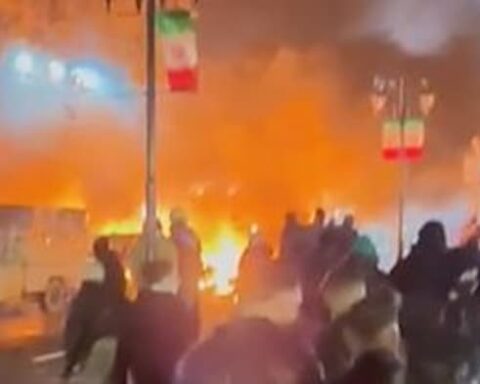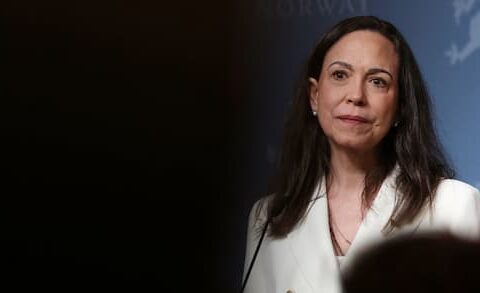I have decided – due to requests from several people – to stop writing negative things about Donald Trump or the Steve Bannon administration that has just come into the White House.
Even though I have serious misgivings about this new administration and its outlook (along with some more positive views on some specific ideas), I will – for a little while, at least – refrain from upsetting anyone any further or bursting any bubbles by asking questions or being too critical about the Trump White House.
Barring any particularly extraordinary event, this will be a Trump-free zone for a while.
So, concerning something like this ‘Muslim Ban’ controversy that is currently going on, I’ve chosen to keep it brief and to not go into a big diatribe about why the ostracizing or demonisation of an entire religious community or entire nations of people is troubling or about how the ban may be unconstitutional under US law and actually illegal under international human rights law.
Also, for the sake of clarity, we should note that it is only a temporary ban for a probationary period of 90 days for now: and that, technically, it isn’t a ‘Muslim Ban’, just a ban on people from seven specific countries (although Trump did openly propose a ban on “all Muslims” during his campaign – which makes it understandable why it would be perceived that way now).
Instead, I’ll just put forward a few curious notes on the details.
Firstly, the seven countries banned by the new White House administration is interesting for a reason I haven’t seen anyone else pick up on yet. It matches, almost precisely, the list of seven countries on the post-9/11 Rumsfeld ‘hit-list’.
That list of nations that were to be targeted for ‘regime change’ by the US Neo-Cons was leaked by Retired General Wesley Clark some years ago. That list matches the Trump/Bannon list of proscribed countries except for one exception – you’d literally just have to swap Yemen for Lebanon and it would be the same list.
–
–
I’m not sure precisely what this correlation signifies – but I thought it was curious enough to draw attention to.
What’s also interesting about this current list of banned countries is that it is a list that is – supposedly – meant to stop terrorism or radical Islamic infiltration and yet it doesn’t include Saudi Arabia, Qatar, Pakistan, Afghanistan or Egypt. Pakistan and Afghanistan are both long-term sufferers of Islamist radicalism and extremist groups, while Saudi Arabia and Qatar are the primary funders and orchestrators of Wahhabism and jihadism. 17 of the 19 alleged hijackers on 9/11 were from Saudi Arabia: but, for some reason, this list instead focuses on countries that – though admittedly unstable – don’t have a history of conducting hostile activity or terrorism on American soil. Post Arab Spring Tunisia is also regarded as suffering an increase in radicalised individuals and jihadists, but is not on this list either.
I’m not suggesting that those countries *should* be on a ban list or that a ban list should even exist – just highlighting the potential logical lapses in this policy. Instead this list seems to focus on countries from which there are genuine humanitarian crises and a genuine outflow of refugees – many of whom are fleeing *from* terrorism and radicalism.
What’s also interesting is that several of these countries – Libya, Syria, Iraq and Yemen – are countries that the US has either invaded, wrecked or helped to collapse. The US invaded Iraq, violently toppled the state in Libya, spent several years waging proxy war in Syria, and is presently directly aiding and enabling the Saudi bombing campaign and humanitarian disaster in Yemen.
Those four countries being on this list feels a little like an arsonist setting several houses on fire and then imposing a ban on anyone trying to flee the burning houses.
The U.S. Refugee Admissions Program has been (indefinitely) suspended, with Syrian refugees in particular being rejected outright. Already, among other incidents, this resulted in a family of Christian Syrian refugees being rejected from Philadelphia Airport and sent back to Qatar. It also means, for example, that Iraqis – including Kurds – fighting alongside US forces against ISIS are banned from visiting the United States even to reunite with relatives already in the US.
Aside from all of that, this policy – as it currently seems to stand – seems like a propaganda god-send for the so-called Islamic State, Al-Qaeda and other Islamo-fascists whose entire radicalisation process is based on the false (or at least it used to be false) idea of ‘Islam versus the West’ or ‘Us and Them’. This policy, if pursued and expanded, will give a massive propaganda boost to recruiters and extremist ideologies; while, at the same time, will target, victimise and demonise innocent, normal people – and refugees – while doing nothing to deter terrorism (as most terrorists are home-grown – and the US has hardly had any ‘Islamic’ terrorism anyway).
Trump’s original ‘Muslim Ban’ idea came as an immediate response to the Orlando nightclub shootings: an attack carried out by a homegrown perpetrator with no links to any foreign groups (and which itself was almost certainly an FBI-built plot: see here and here).
Frances Flannery, a terrorism expert who runs the Center for the Interdisciplinary Study of Terrorism and Peace, warned Salon that America is likely to experience major blowback from this policy, noting that only “0.02 percent of Muslims in the world are terrorists, based on State Department statistics. Consequently, any “black-and-white, ‘us vs. them’ rhetoric that groups 134 million people [meaning those affected by the ban] together with the radicalized few, or claims that the problem is Islam, is both seriously misinformed and dangerous.”
I am choosing to assume that President Trump himself genuinely thinks he is following a smart course to ‘make America safe again’.
I don’t extend the same good will, however, to Steve Bannon and some of the other figures around Trump and whispering in his ear. It also seems perverse that this much attention is being focused on keeping America safe from radical Islam when both extreme-right terrorism and general gun crime kills far more Americans than ‘Muslims’ or foreigners do – and yet Trump and everyone in the administration is entirely against gun control.
There is some basic logic in restricting entry to people from unstable, crime-ridden countries like Somalia and Sudan or from war-torn countries like Libya, Iraq, Syria and Yemen, but it is difficult to see what is to be gained from a blanket ban on anyone – including refugees – from those nations. All it does is further stigmatise a particular community, amplify the ‘Us and Them’ paradigm both at home and abroad, and confirm and reinforce the atmosphere of division.
The US – contrary to Trump’s claims – already has/had very strict and thorough vetting procedures, particularly in regard to immigration or entry from Muslim-majority countries and particularly after 9/11.
The claims about lackluster screening mechanisms are entirely false, and there is no record of a ‘terrorist’ ever slipping through the system. At any rate, this current 7-country-ban would never have prevented 9/11 (even if you believe 9/11 was a genuine terrorist operation and not an inside job), as none of the 19 alleged hijackers were from any of these seven countries.
We’ll have to wait and see how this plays out, what happens after the 90-day period or whether this policy can even be legally sustained. It is difficult, however, to see what is going to be gained from it.
_____________
Related: ‘The Refugee/Migrant Crisis – Exposing the Anti-Refugee Lies/Propaganda‘…
_____________





“Israel has no diplomatic relations with any of the seven countries,” according to the article linked below.
It does, furthermore, seem to be a true “Muslim ban” in that certain variety of non-Muslims from those countries have not been affected:
http://www.timesofisrael.com/israelis-born-in-arab-states-not-included-in-travel-ban-us-embassy/
Thanks, icareviews. I would be very surprised at this point if both Trump and Theresa May aren’t Israeli agents.
Another reason only these seven countries were picked is probably because they are the only muslim countries where trump hasn’t got any business interests, i know for a fact that in saudi he has about five and also has two in egypt!!
Yes, Raf Ahmed, that had occurred to me too. Would be interesting to know if he has business interests also in other Gulf States, as well as Pakistan, Tunisia, Indonesia, etc.
Decayedness. All planet is smelling like the rotten apple.
http://www.bbc.co.uk/news/world-us-canada-38798588